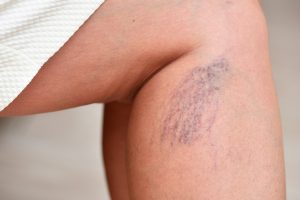
Seems easy enough, right? Other than your head, all that blood gets to flow downwards, taking advantage of the gravity.
But your veins have a bit of a challenge. They have to work against the laws of gravity to carry blood back to your heart so it can be oxygenated and sent out again.
When your veins are in good health, blood flows easily and circulation works well. Your veins scoff at the idea of gravity.
But if circulation wanes, gravity might get a bit more real. Blood can have a harder time flowing back upwards, especially from your lower extremities like your legs and feet. This may ultimately influence your overall health.
If blood is having a hard time getting back to the heart, the same volume can’t be pumped out to keep the rest of your tissue healthy.
So, how can you improve circulation? There are a few ways you can lend a hand to your circulatory system and help out your veins.
The first is to stay active. Activity encourages blood flow and is one of the best ways to keep veins healthy. Exercise stimulates nitric oxide (NO) production to help relax veins so blood travels more easily.
When you spend too much time sedentary or sitting, blood can pool and stop moving. It can also lead to trouble with valves between blood vessels, which are responsible for regulating blood flow, potentially leading to varicose veins and other problems.
Food choice can also make a difference in vein health. Processed foods, refined sugars, and other items that promote inflammation can make it harder on the cells that line your vein walls. On the other hand, foods that fight inflammation and encourage NO production can help things keep on moving.
Every day, your veins accomplish the difficult task of battling gravity – and winning. Help them do their job by taking good care of them.